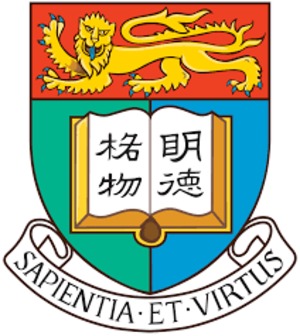The University of Hong Kong and State University of New York are offering free online course on Making Sense of the News: News Literacy Lessons for Digital Citizens.
This course is available for anybody who is interested in learning how to evaluate the quality of news and journalism in order to judge the reliability of information and make informed judgment. The course will start on January 9, 2017.
Course At A Glance
Subject: Making Sense of the News
Institution: The University of Hong Kong, The State University of New York and Coursera
Languages: English
Price: Free
Certificate Available: Yes
Session: Course Starts on January 9, 2017
Providers' Details
The University of Hong Kong is the territory's oldest institute of higher learning and also an internationally recognized, research led, comprehensive university. It engages in frontier research and academic endeavours that reflect and address the needs of a fast changing, knowledge-based world.
The State University of New York, with 64 unique institutions, is the largest comprehensive system of higher education in the United States. Educating nearly 468,000 students in more than 7,500 degree and certificate programs both on campus and online, SUNY has nearly 3 million alumni around the globe.
About This Course
This six-week course will help learners develop their critical thinking skills to enable them to better identify reliable information in news reports and to become better informed about the world in which we live. The course will discuss the key elements of journalism from the viewpoint of the news audience. The language of instruction is English, but Chinese and Spanish subtitles will be available.
Learning Outcomes
Learners will examine, analyze and internalize the following topics:
- Why news matters? Power of information
- Why news literacy matters? Social sharing and the dynamics of the news cycles.
- What makes journalism different? Verification, independence, accountability. Information neighborhoods. The blurred lines between news, promotion, entertainment and raw information
- What drives news? Universal news values. Editorial judgement.
- What is trustworthy information? Truth. Evidence. Media bias, audience bias. Opinion journalism and bloviation. Fairness. False equivalence.
- Why does verification fail? The limits of journalism.
- Who provides information? Source evaluation.
- How do we know what we know? Becoming an active news audience.
Instructors
Masato Kajimoto, Assistant Professor ( Journalism and Media Studies Centre, The University of Hong Kong)
Howard Schneider, Dean (Stony Brook University School of Journalism)
Anne Kruger, Lecturer (Journalism and Media Studies Centre, The University of Hong Kong)
Steven Reiner, Assistant Professor (Stony Brook University School of Journalism)
Jonathan Anzalone, Lecturer and Assistant Director of the Center for News Literacy (Stony Brook University School of Journalism)
Michael A. Spikes, Director, Digital Resources (Center for News Literacy, Stony Brook University School of Journalism)
Richard Hornik, Lecturer (Stony Brook University School of Journalism)
Requirements
University is thrilled to make this course available for anybody who is interested in learning how to evaluate the quality of news and journalism in order to judge the reliability of information and make informed judgment. It is an online version of the News Literacy curriculum developed at Stony Brook University in New York and the University of Hong Kong. More than 15,000 university students in ten countries have taken it over the last ten years. We have been constantly updating our course material by incorporating the impact of the growing popularity of smart phones and social media services around the world. We hope you enjoy the course!
How To Join This Course
- Go to the course website link
- Create a Coursera account to SignUp
- Choose “Register Now” to get started.
